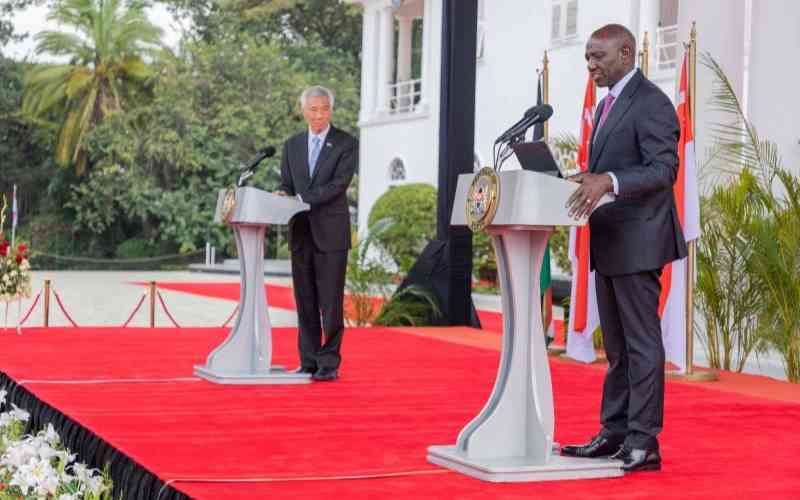
On May 18, President William Ruto, speaking while hosting Singapore Prime Minister Lee Hisien Loong, praised the country's success in the public housing provision, saying that Kenya is 60 years late in taking the bold step of saving into a housing fund that will mirror Singapore's model.
Recently, during a meeting with the Kenya Association of Manufacturers and the Council of Governors, the President once again invoked the Singapore housing model, to drum up support for the ambitious government housing project saying it cannot wait.